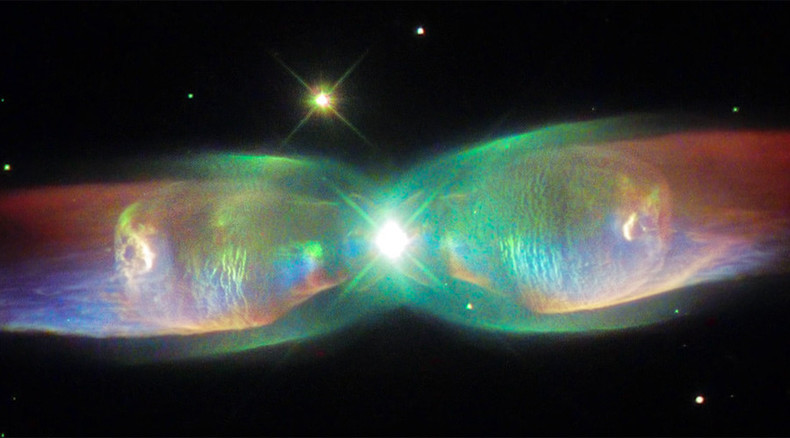To: LibWhacker; A. Patriot; AndrewC; antonia; aristotleman; Art in Idaho; Bellflower; Boogieman; ...
The entire premise of this article fails due to the fact that the accretion model of planetary formation doesn’t work. Every system modeled using what we know using gravity and physics breaks down when collisions break the protocol bodies apart with greater and greater force than gravity, a very weak force in comparison to the force of the collisions’ velocities, until it can reach a threshold size, in addition, every single asteroid and comet we’ve visited or flown by with space probes has been discovered, contrary to predictions of orthodox gravity cosmologists and cometary scientists, to have actually been bone dry, showing far less than 1% of the water and ice expected to be found, even to the extent that tethering ice anchors planned to secure a space probe lander to Comet 67P Churyumov–Gerasimenko failed completely when the lander encountered solid rock instead of ice and bounced seven times before finally coming to rest. Similarly an ice drill on the lander probe failed when it could not penetrate the surface because the surface was not the expected "dirty snowball mix" of ice and other junk, but was instead solid rock.
The plasma/electric Universe cosmologists had predicted everything the probes would encounter. The water seen in cometary comae and tails is actually an electrical phenomena created ad Hoch from hydroxyl radicals (OH) electrically machined from the surface of comets due to electron discharging from a huge electrical charge differential encountering the the sun’s different charge. These Hydroxyl Radical encounter ionized Hydrogen in the solar wind (a charged plasma) which enter glow discharge mode, forming the coma and tail away from the sun, and form brand new H2O, water. In the Deep Impact experiment, where NASA hit Comet Tempel 1 with a 667 pound solid copper probe about the size of a washing machine at meteor speeds, the spectroscopic analysis showed the "release" of chemically pure water in a cone from the impact point that was less than 5° of arc from parallel to the incoming track of the probe before it hit, although ejecta and other debris from the impact spread over a 190° of arc, which contained no water. The lead scientist of the project said that only in the 5°of arc was any water at all found and that was where the highest energy and highest levels of OH was also found. SHe also said "it was almost as if the water was being created in that 5° cone." unaware that is exactly what was occurring as the Electric Universe Cosmologists predicted WOULD be observed.—Electric Universe PING!

Clear Example of a Birkeland Current
"Z" Pinch with Symmetrical Plasmids
seen in Hubble Telescope View of
The Twin Jet Nebula
Stars are created at the pinch,
rocky planets at the natural harmonic points in the
ELECTRIC UNIVERSE
PING!
If you want on or off the Electric Universe Ping List, Freepmail me.
24 posted on
11/10/2018 12:15:12 PM PST by
Swordmaker
(My pistol self-identifies as an iPad, so you must accept it in gun-free zones, you hoplaphobe bigo)
To: Swordmaker
"...an ice drill on the lander probe failed when it could not penetrate the surface because the surface was not the expected "dirty snowball mix" of ice and other junk, but was instead solid rock." After that stunning falsification of the 'dirty snowball' theory, the lander team scientists got up at their press conference and attempted to explain it away by claiming that comets really are balls of dirty ice, but they appear to be surrounded by shells of rocky material.
Amazing. Can they explain how such objects could even be formed?
When their theories fail to predict real world observations, mainstream cosmologists never seem to question the validity of the theories themselves. They just patch them over with ever more ludicrous theoretical explanations.
27 posted on
11/10/2018 12:56:18 PM PST by
Windflier
(Pitchforks and torches ripen on the vine. Left too long, they become black rifles.)
FreeRepublic.com is powered by software copyright 2000-2008 John Robinson
